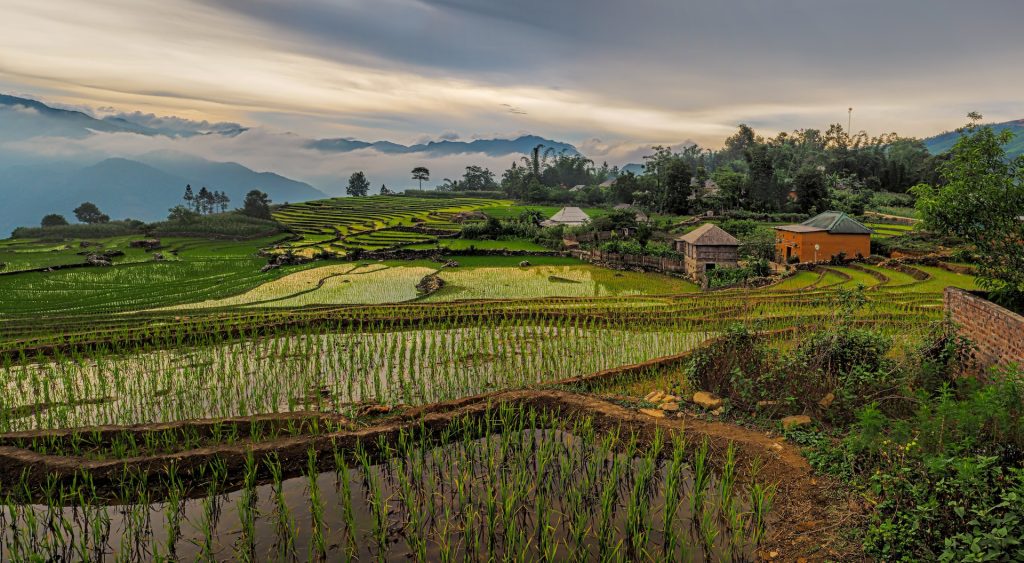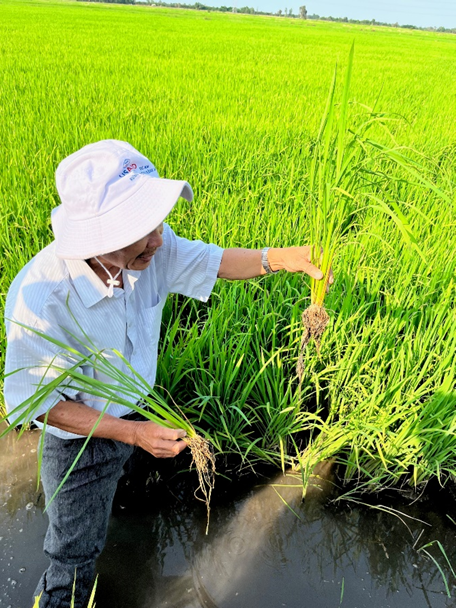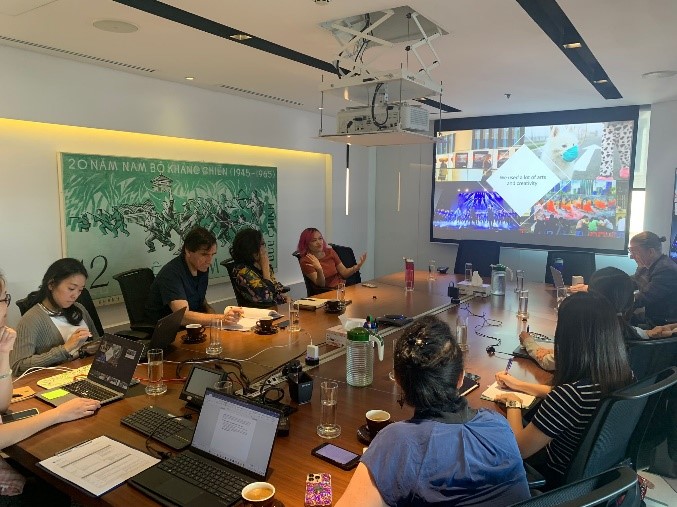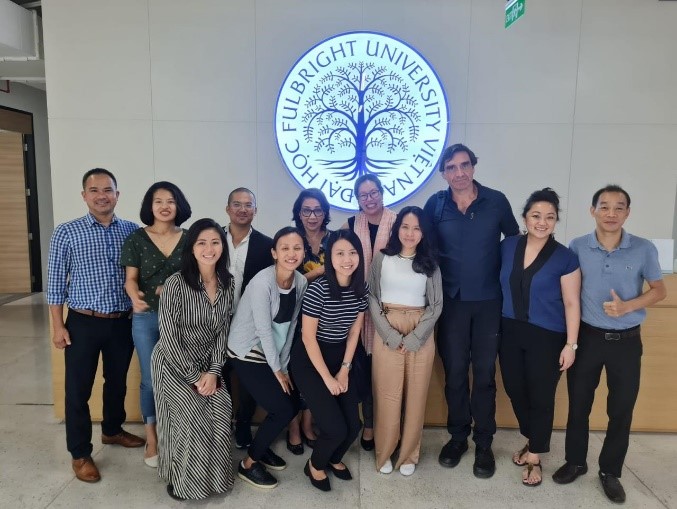BY SARAH TAM, PROGRAMME LEAD (APC CLIMATE COLLECTIVE), ASIA PHILANTHROPY CIRCLE

Strap in for an adventure!
After a year of virtual meetings, APC Climate Collective members and friends from Singapore, Hong Kong, and Vietnam were thrilled to finally gather in Ho Chi Minh City for two days of learning and exchange.
The trip was packed with all sorts of exciting highlights! One of the most unforgettable experiences was discovering the amazing climate work that Climate Collective members are supporting in Vietnam, which brought us from stunning rice fields to a bustling university in the heart of Ho Chi Minh City.
Of course, our site visit wouldn’t be complete without indulging in delicious food, an unexpected musical performance, and spending time with great company!
Day 1: Getting smart about rice
Did you know? 90% of rice is produced and consumed in Asia. Yet agriculture and related land use emissions account for 17% of greenhouse gas (GHG) emissions, making it the world’s second-largest emitter, after the energy sector.
The same story holds true in Vietnam, where rice is an important staple crop but is also a significant source of GHG emissions. Methane emissions from rice cultivation alone account for 15% of the country’s total emissions, a GHG emission that is 80 times more potent than CO2.
So, what can be done to address this issue?
One initiative that seeks to mitigate these emissions is the Climate Smart Rice Transition project, developed by the Vietnam Farmers’ Union (VnFU) and EarthCare Foundation (ECF).
To learn more about this project, we hopped on two-hour journey to Long An Province to speak with farmers involved in the project, as well as representatives from the Farmers’ Union.
The project aims to promote climate-smart rice cultivation practices in Vietnam, including reducing the use of fertilisers and pesticides, conserving water, and decreasing methane emissions. Through the project, the VnFU and EarthCare Foundation are working with farmers to adopt new technologies and techniques that are better for the environment and can increase crop yields.

Mr. Tung, a technical expert, shared that changing the behaviour and perception of smallholder farmers was the most challenging aspect of the project. Although farmers are familiar with techniques, many lack the confidence to implement them effectively or held assumptions about perceived risk and increased labour. To address this, ECF leverages principles of Behavioural Science to understand the core drivers of human behaviour to motivate change and deliver climate, social, and environmental impacts through the project.
With the success of Phase 1, more households got involved. Interestingly, the biggest impact for farmers was not yield and outputs, but rather cost savings from using less chemical fertiliser and seeds. On average, farmers saved VND 3-5 million per crop per hectare, and expressed a commitment to continue using project techniques due to the livelihood benefits they bring.
Day 2: Conserving and protecting what matters
Did you know? Vietnam’s natural resources have been depleted due to war and economic development. Studies show that forest cover declined by 50% between 1945-1980 due to the Vietnam War. Forest cover continued to decrease until the 1990s because of logging and land conversion, leading to further reduction from 32% to 27%.
How are individuals and organisations in Vietnam addressing the twin crisis of biodiversity loss and climate change?
Our Vietnam country representatives Mimi Vu and Van Ly organized a phenomenal Day 2 at Dragon Capital and Fulbright University with a stellar lineup of changemakers who are raising public awareness through investigative journalism, funding conservation projects, building capacity of local conservation NGOs, advising government, and developing research for policy engagement.


Here is what we learned:
- Effective policy engagement through the right channels is essential. Effective policy engagement is key to driving positive change and achieving sustainable outcomes. Organisations that play a critical role in implementing policies can partner with governments in a variety of ways: from background processes—such as providing feedback on government policy papers—or more direct approaches, such as position papers or technical assistance. These collaborations facilitate constructive dialogue and meaningful contributions to policy development and implementation
- Market access is critical for the long-term sustainability of projects. Ensuring quality assurance and market access for non-conventional rice products, such as organic and climate-smart rice is critical. However, establishing a local premium market chain is still a challenge in many parts of Asia. One successful project in Cambodia incentivised farmers to participate in conservation activities by purchasing their rice at a 30% premium and linking them to the IBIS Rice market.
- Changing the way philanthropy responds to crisis. Philanthropy must adapt to the climate and biodiversity crisis, just as businesses, governments, and NGOs are doing. Conservation Vietnam is leading the way in Vietnam by setting up an endowment to fund conservation projects and build the capacity of local conservation NGOs. They prioritise agile and responsive giving to organisations that create positive outcomes for biodiversity and civil society, ranging from wildlife translocation to policy development.
Coming home: What’s next?
This visit was filled with awe-inspiring sights and meaningful connection that left us all feeling energised and inspired.
It also cemented support for Phase 2 of Earthcare Foundation and VNFU’s project, with APC and Climate Collective members co-funding the next phase of the project in Northern Vietnam. The project will further promote climate-smart rice cultivation with intensive execution in a single province. If successful, the pilot will create the basis for scaling up climate-smart rice cultivation across 63 provinces in Vietnam.
Who knows what the next visit will bring!
